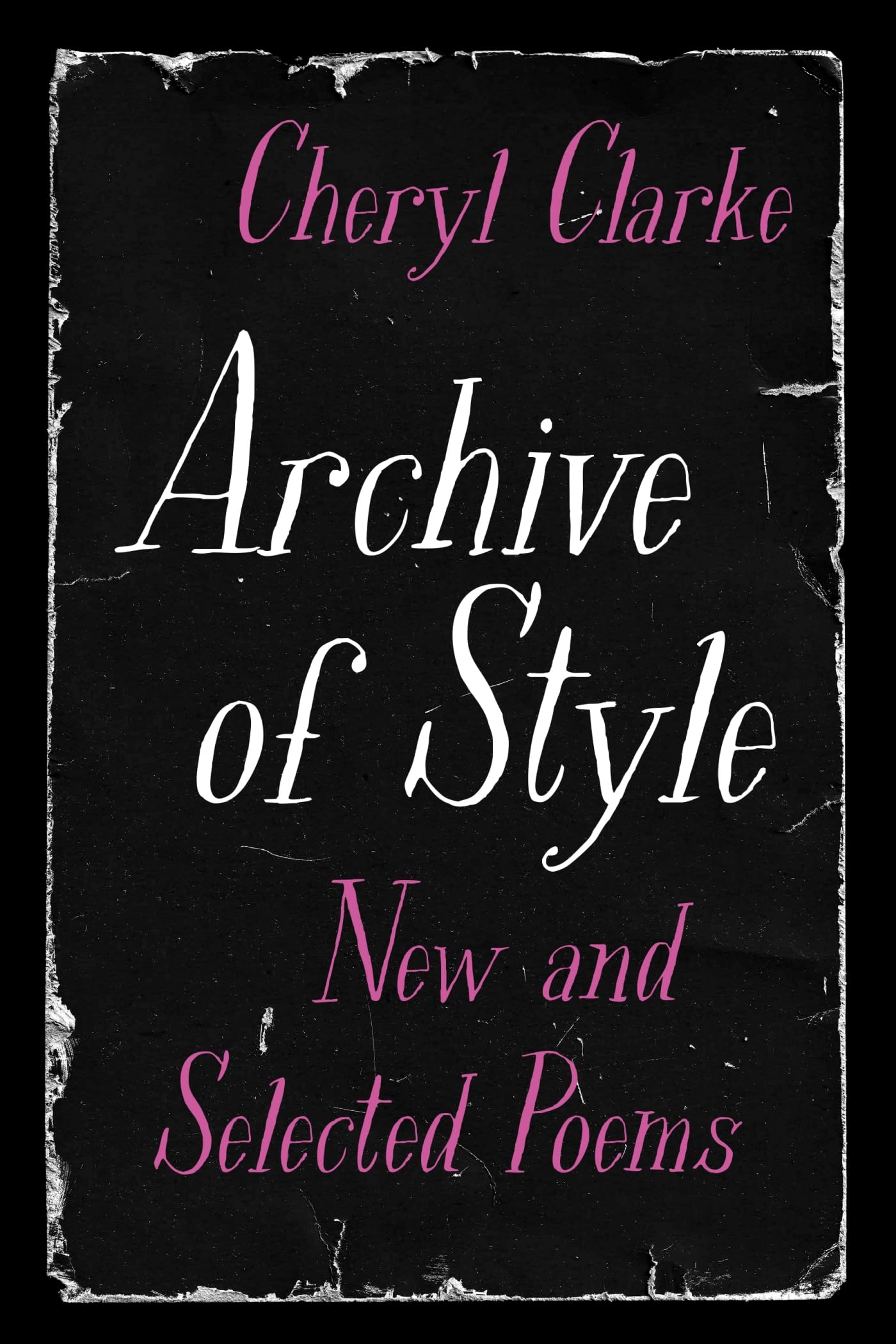 SUPER GAY POEMS: LGBTQIA+ Poetry after Stonewall
SUPER GAY POEMS: LGBTQIA+ Poetry after Stonewall
Edited by Stephanie Burt
Belknap Press (Harvard Univ. Press). 368 pages, $29.95

ARCHIVE OF STYLE: New and Selected Poems
by Cheryl Clarke
TriQuarterly (Northwestern Univ. Press). 192 pages, $29.
STEPHANIE BURT, a professor of English at Harvard, has assembled a somewhat idiosyncratic collection of poems designed to represent a cross-section of LGBT poetry written since Stonewall. As a transwoman herself, she remarks that this is “the book I wish I could have seen when I was a baby trans, trying to figure out whether—if ever—I could come out myself.” The downside of this approach is that after a fashion the poems can begin to feel somewhat narrowly focused and repetitive. Nevertheless, the presence of so many previously unknown—especially trans—voices is welcome.
Like many readers, I suspect, I have often found myself wondering whether overly obtuse or encoded poems are worth the effort. “Just try” might be the operating mantra of this collection. Just try to understand what the poet is saying, Burt urges. Reading her essays is like sitting in class with your favorite English professor: Resistance is futile. Just try to dislike or dismiss the poems that she has chosen to investigate.
A special challenge for readers is activist or “political” poetry, which can sometimes seem more polemical than poetic. Such is the risk for poet Cheryl Clarke, whose newly published collection Archive of Style: New and Selected Poems falls under this general rubric. But Clarke manages to avoid the pitfalls of protest poetry to compose works of genuine substance. In a poem about Sandra Bland titled “On Their Way to Life,” she retroactively admonishes Bland about leaving Chicago and entering a hostile American South: “Better to stay with the extreme temperatures of your Midwest metropole than to cross the median in a Texas prairie town or a Mississippi Delta.” Highlighting the personal and the political nature of Bland’s death at the hands of a southern cop, she has Bland ask hauntingly: “You’re gonna arrest me for changing a lane?”
Clarke’s subject matter encompasses lesbianism, feminism, and Black identity in America, touching upon individuals such as Nelson Mandela, Billie Holiday, Greta Garbo, and Otis Redding. Yet some of her best poems and lines stem from her quieter, less topical work. In a poem from her 1986 collection Living as a Lesbian, she writes: “The city fumes with expectations/ and the smells of women/ wanting women./ Been in love/ six times in the last six months/ and ain’t done trying yet” (“I come to the city”). She celebrates the bonds of female relationships in another poem (“No Place”) by describing a group of men ogling some female dancers. The poem’s opening line indicates that the speaker is aware of the danger of her own attraction to one of the women: “This ain’t no place to love a woman.” But in the course of the poem, she separates herself from the crowd and concludes by acknowledging that she’s destined for a future apart from the heteronormative world around her: “The men clapped for me to dance again./ The women called me back to the circle.”
It’s probably fair to say that the best activist poetry finds a middle ground between the personal and the political—a course most of Clarke’s poetry succeeds in finding. In the poem “Reckless Domesticity,” she states: “Free is a worrisome thing.” Archive of Style is a moving and meaningful exploration of one Black lesbian feminist’s lifetime of struggle and questioning. _______________________________________________________






